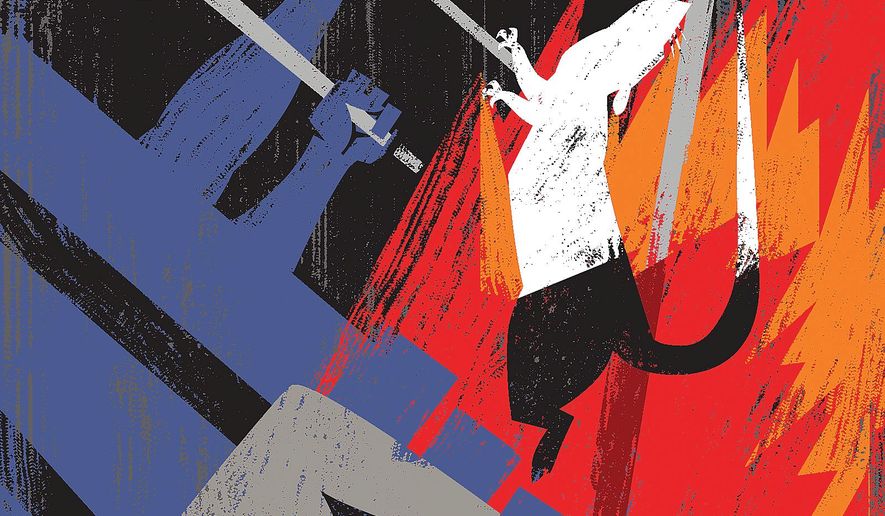OPINION:
What did Barack Obama know and when did he know it? Those Watergate-era questions are increasingly relevant today in the rapidly expanding government-media debacle once intended solely to ensnare Donald Trump.
With revelations already reaching into the Obama White House, I suggested four months ago that the deep state’s disinformation campaign was becoming more aggressive.
As the Spy-gate story made headlines, Charles Hurt of The Washington Times connected the latest dots: “The Obama administration perverted one of the most powerful, clandestine spying operations in the world and used it to spy on political opponents, punish them and, ultimately, silence them through extortion.”
Those charges were dismissed by former Democratic officeholders (and current media commentators) such as former Director of National Intelligence James Clapper and CIA Director John Brennan.
But just like Watergate, glib defenses were swiftly eclipsed by more troubling revelations. Sharyl Attkisson pointed out eight signs of a “counterintelligence operation deployed against Trump’s campaign.” These signs were eerily similar to information operations mounted against her as a CBS News reporter pursuing stories the Obama White House preferred to conceal.
But these “witch hunts” are only parts of a much larger story. During the last four decades, the American intelligence establishment has surpassed the “military-industrial complex” President Dwight Eisenhower famously warned against. Instead of silently guarding American freedom, our intelligence agencies are rapidly morphing into a far more malevolent presence — one apparently capable of executing a silent coup.
I saw those tendencies early in my career as a Cold War intelligence officer in West Germany when my battalion commander confided an ominous secret. Army counterintelligence agents had spied on expatriate Democrats in West Berlin. That jaw-dropping idiocy occurred just when we were already overrun with Eastern Bloc spies and left-wing terrorists busily planting bombs on U.S. military installations. Inevitably, those dark secrets became public in a wave of headlines and angry recriminations. The oversight committees which today operate on both sides of Capitol Hill were meant to improve political accountability of intelligence operations.
But congressional leaders mostly spent the next 20 years presiding over the fundamental transformation of American armed forces. While we could never match the numbers of Soviet armies and navies, information-based technologies provided an effective American response. Reagan-era defense programs used more and more information to acquire targets at longer and longer ranges. Our mantra: What could be seen could be hit and killed, often with a single shot.
Both Gulf wars demonstrated the lethality of the new “extended weapon system” reaching from Washington-based intelligence agencies to the bridges and cockpits of our ships, fighters and front-line foxholes. As Moore’s Law observed, computers and processors kept getting smaller; everything else did, too, except the budgets of those agencies. They grew steadily larger, more numerous and more self-confident. The once super-secret National Security Agency now had public relations officers and even its own website.
Added to these were more buildings, super computers and super-grade civilians to manage their steadily growing bureaucracies. Savvy agency leaders had long since learned how to manipulate their congressional counterparts, ensuring that super-sized budgets arrived regularly even after the Russians gave up and went home. A half-century after their creation, the FBI and CIA rarely spoke, so September 11 admittedly came as a shock. Still, the tragedy offered opportunities for old Beltway pros who had seen a thing or two. While remaining discreet in public, they were more candid in private: “Sure, we presided over the greatest intelligence disaster since Pearl Harbor but, with the nation under attack, now you need us more than ever.”
Rightly or wrongly, nobody was ever fired or disciplined for pre-September 11 malfeasance. Even better, George W. Bush dealt with his scattered and chronically disorganized intelligence community by creating yet another super agency, the Directorate of National Intelligence. Allegedly, DNI was supposed to supervise whatever agencies actually existed; no mean feat since they lacked common travel agents or even ZIP codes. Without any ideas of its own, Congress obediently acceded, creating a whole new intelligence fudge factory.
Even if it seems like a re-run of “The Sopranos,” can you possibly understand why a thoroughly self-absorbed intelligence establishment would regard the eight years of Barack Obama as an insider’s paradise? Even more so if Hillary Clinton succeeded him? They collectively assumed that Hillary’s elevation would ensure that any “irregularities” — like her notorious file server and pay-for-play schemes — would remain hidden. Slick intelligence operatives like James Clapper and John Brennan easily manipulated their square-headed FBI colleagues into those now-familiar madcap adventures with Russian dossiers and fraudulent FISA warrants.
So for now, Mr. Trump’s job is to hang in there and survive. The purges will follow in due course.
• Ken Allard, a retired U.S. Army colonel, is a military analyst and author on national security issues.




Please read our comment policy before commenting.